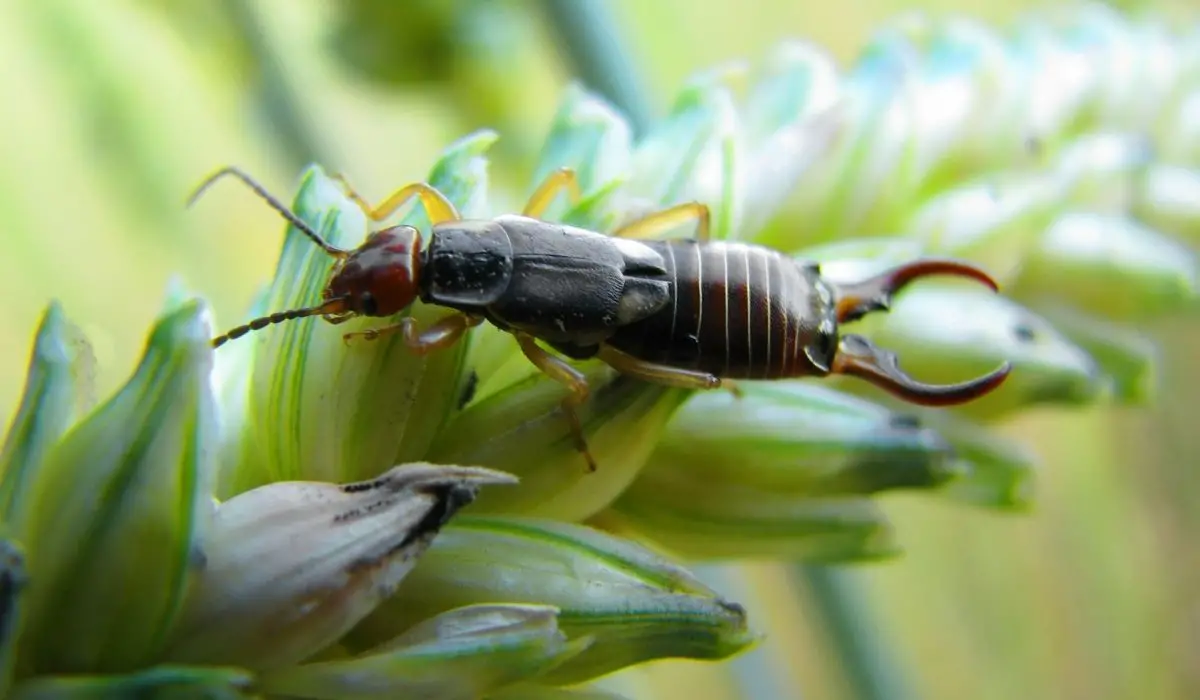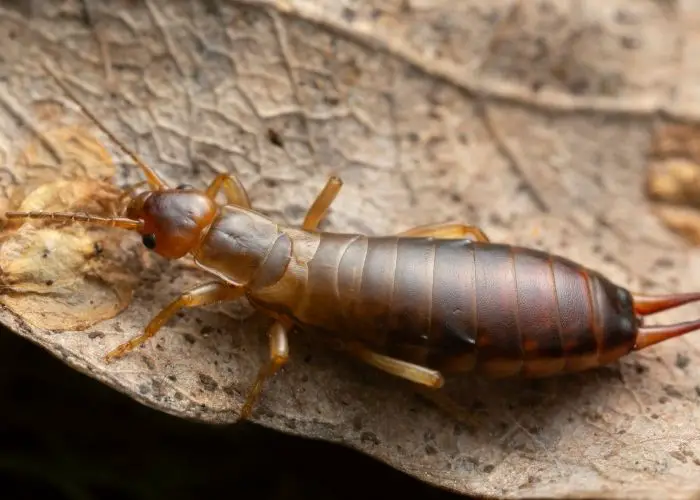Last Updated on November 30, 2021 by
There’s nothing worst than an earwigs infestation in your garden, but how about forsaking the pesticides and trying some home remedies for earwigs? You aim for organic food, so organic repellent sounds the right way to go. We suggest trying a few combinations, and some are even safe to use inside your house.
The best part yet – all of them include pantry staples. Read on to spare your garden and your budget.
What Are Earwigs?
Earwigs are not a threat to human health. They’re nocturnal insects that feed on smaller insects, organic matters like plants and vegetables, their leaves, and flowers. If you’ve noticed holes in the leaves of your favorite plants, then earwigs are the culprit. There are over 20 different species living in different parts of the US.
Can Earwigs Infest Your Home?
The annoying pests can find their way into your home. During the day, they hide in dark, moist spaces and exit at night to feed. Crevices, cracks in wood, carpets, bathroom cabinets, and even your home library are the first place to look for earwigs.
Home infestations happen when you don’t treat the infestation in your garden on time. Earwigs don’t reproduce inside; they don’t bite, transmit disease or harm your household. Keeping this in mind, you should never leave an earwig infestation untreated. And with home remedies getting rid of earwigs is simpler than ever.
When Do Earwigs Come Out?
Earwigs sleep during the day and come out at night. Their routine is the same whether they’re hiding in your garden or house. Earwigs prefer moisture, so they look for shelter inside your home once a dry spell comes around. Unfortunately, some of them unintentionally wander off and end up inside.
How To Get Rid Of Earwigs In Your House Naturally
The simplest way to get rid of earwigs is with earwigs pesticides like diatomaceous earth or boric acid. Since you’re looking for home remedies to fight earwigs, here are some better options.
Rubbing alcohol – mix equal parts 70% alcohol with distilled water and place in a spray bottle. Spray the bugs directly, and they die immediately.
Dish soap – dilute dish soap with water and place in a spray bottle. Spray all the areas where you’ve noticed earwigs movement.
Olive oil – mix olive oil with something fragrant like cinnamon or soy sauce. Pour in small containers and place near the place where you’ve spotted the earwigs. The smell attracts them, and once they climb, they drown in the oil.
Light traps – place containers with oil or dish soap solutions and point a flashlight to them during the night. Earwigs are attracted to light during the night. So they’ll go into the containers and drown.
Vacuum cleaning – vacuuming is fast, clean but not 100% effective since the bugs are tiny and can easily hide. They’re also nocturnal, so it might be harder to find them.

Homemade Earwig Killer Spray
So you’ve tried some home remedies to get rid of earwigs, and they don’t work. Or you need something you can spray directly on the plants without damaging them.
We have an extremely good recipe. This earwig spray is made of pantry supplies, and it’s completely natural. All you need is 5 minutes of free time, a spray bottle, and a mesh strainer.
Get biodegradable dishwashing detergent, 2 heads of garlic, and 2 tablespoons of cayenne pepper. In a jar, put the pressed garlic, pepper, and a tablespoon of the detergent. Add 33oz of water, cover, and let it sit overnight.
Strain the liquid into a spray bottle the following day. Perform a patch test by spraying the solution on one leaf. If there’s no adverse reaction, spray your plants. Keep the spray in the fridge and use it once a week, always in the morning.
How To Get Rid Of Pincher Bugs
Earwigs are also known as pincher bugs. We mentioned that they don’t cause harm to humans, so the pincher title is due to the two long pincers at their tail. They use the pincers to catch prey like sowbugs, mites, and aphids. In addition, pincher bugs are known to eat the eggs of other insects.
Pincher bugs are subsocial, so can barely find them in large numbers. Once you spot their trajectory, use some of the sprays we mentioned earlier. If you’re one of the few lucky people to get an infestation, you can always call earwig exterminators.
Remember, the fastest way to get rid of pincher bugs is to eliminate their food source and safe place. Do a deep clean under carpets and around fissures. Remove decaying organic matter like leaves and fruits and even newspapers lying around.
Why Choose A Natural Way To Get Rid Of Earwigs
Natural ways to get rid of bugs are safe for adults, kids, and pets. Additionally, using a natural insecticide is cheaper and always available. You can safely use it on flowers, plants, and crops. It helps conserve the environment since no harmful ingredients are going into the soil and waters. Other forms of life are safe yet the pests get defeated.
Can Home Remedies Prevent Future Earwigs Infestations?
You can control future infestations by regularly applying some of the home remedies against earwigs. But it’s essential to clean and eliminate any hiding places in your garden and home. Don’t put mulch around the plants near your doorway. Eliminate any moisture under carpets, sinks, and inside cabinets.
Final Say: Home Remedies For Earwigs In A Nutshell
Insecticides are often filled with harmful chemicals that aren’t safe to use around the house. But having your precious flowers ruined in one night is a terrible scene to wake up to. When faced with intruders like earwigs, you might want to go for some home remedies. A simple dilution of garlic, pepper, and water can save you money and keep you safe. It’s even safe to use directly on your plants. Biodegradable detergent and water can do a great job too.
Are you finding random holes in the leaves of your plants? Is someone you know struggling to fight off earwigs? Try these remedies or share the article with them!
Learn more about Loquat Tree Growth Rate: What To Expect.
Mary is a passionate gardener who loves spending her days getting her hands dirty and nurturing her plants. She‘s an avid reader of gardening magazines and is always looking for new ways to make her garden thrive. When not outside tending to her plants, Mary can be found inside reading up on the latest gardening trends, comparing notes with fellow gardeners, and finding the perfect pottery planter for her next planting project.



